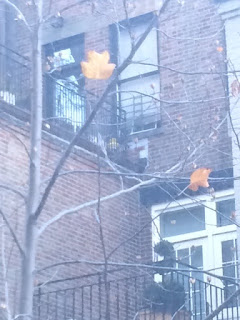Partial Accounting
I've not been keeping up with the recording of my reading that I wish to remember. So here is a very partial accounting of the books read in the period from July to now: 1. Basho and His Interpreters: Selected Hokku with Commentary edited by Makoto Ueda -invaluable 2. Walden by Haiku by Ian Marshall -interesting project of extracting haiku from Thoreau's prose, but finally unconvincing 3. Two-Timing Modernity: Homosocial Narrative in Modern Japanese Fiction by J. Keith Vincent -subtle and persuasive study of how the Japanese texts betray both the feudal past and the longed-for modernity. Insightful analysis of Natsume Soseki's Kokoro and its critical reception. 4. Kokoro by Natsume Soseki - a most subtle tripartite structure: like a haiku? 5. Botchan by Natsume Soseki -witty, a light work 6. State of War by Ninotchka Rosca -too much exposition but memorable characters. 7. After You by Cyril Wong -he does survival in different voices 8. Map: C...

